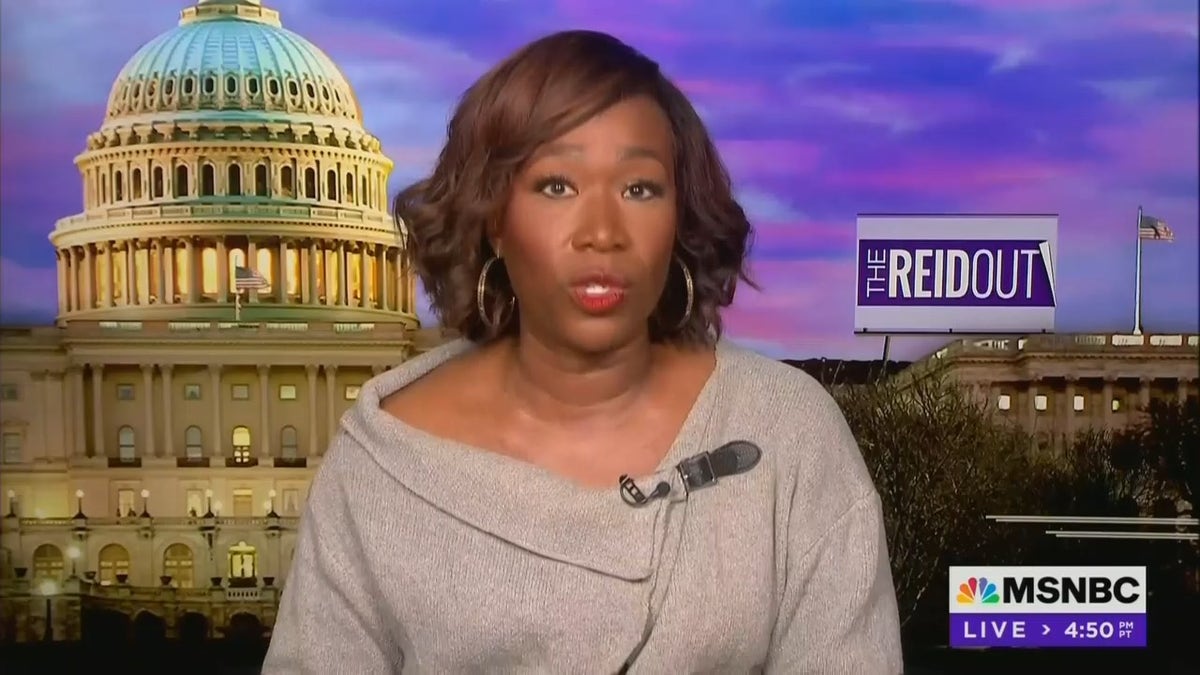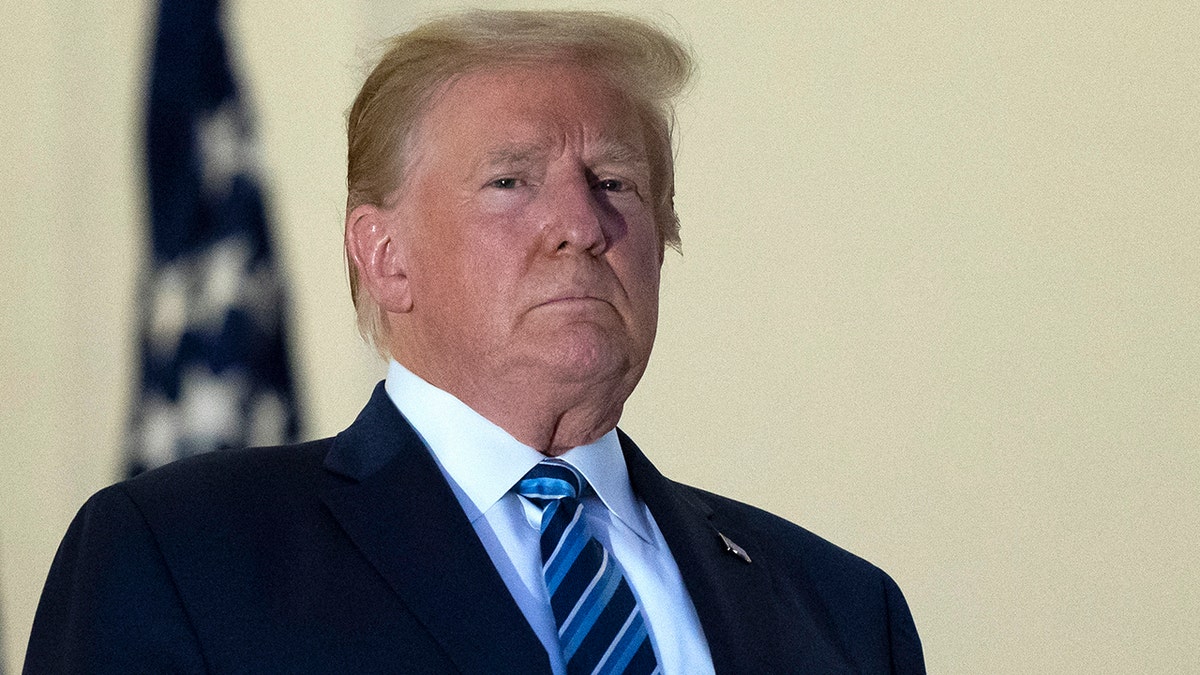Biden is reacting to Putin, not taking control: Fmr. chief Pentagon spokesman
Jonathan Rath Hoffman discusses if sanctions will really impact Russia on 'America Reports.'
Defenders of President Biden scolded critics of his decision not to take questions following Tuesday’s remarks on sanctions imposed by the White House against Russia, evoking the mantra that "politics stops at the water's edge," but the decorum was largely ignored during the previous administration.
"So weird that the ‘Trump is Putin’s puppet’ folks have rediscovered the importance of ‘politics stops at the water's edge’ in the Biden era lol," Cavalry founding partner and podcaster Michael Duncan observed.
The Twitter account for House Republicans captioned a photo of Biden turning his back on reporters and walking away without taking questions by writing, "This is what weakness on the world stage looks like." The tweet was hit with immediate backlash, including one observer who asked, "Whatever happened to, ‘Politics stops at the water's edge?’"
RUSSIA-UKRAINE: BIDEN ANNOUNCES SANCTIONS, TROOP MOVEMENTS IN RESPONSE TO INVASION: LIVE UPDATES
Another critic responded, "Just add 'politics stops at the water's edge' to the list of American principles jettisoned to own libs."
Many other pundits have scolded critics of Biden’s Tuesday remarks. CNN’s Kasie Hunt even suggested Republicans were the "enemy" for criticizing Biden as the U.S. "works to keep alliances strong."
MSNBC’s Joy Reid agreed with the notion that domestic political beef shouldn’t affect foreign policy.
"’Politics ends at the water's edge’ used to be a thing," Reid wrote in response to the tweet. Biden, however, was not abroad, but in the White House.

MSNBC’s Joy Reid declared, "’Politics ends at the water's edge’ used to be a thing." (screenshot)
The phrase, attributed to Sen. Arthur Vandenberg, a Republican from Michigan who supported Democratic President Harry Truman during the aftermath of World War II, is being used to scold Republicans as the Ukraine-Russia crisis escalates. However, liberals didn’t exactly live by that mantra when former President Trump was in office.
Trump going abroad didn’t slow down his outspoken critics. The Washington Times once rounded up criticism following his July 2018 summit in Helsinki with Russian President Vladimir Putin, where he was pilloried for saying he took Putin's denial of meddling in U.S. elections at face value. Among his fierce critics was the late Sen. John McCain, R-Ariz.
"A former Obama official deemed it ‘treason.’ A CNN ‘analyst’ called for a ‘shadow government’ to take him out. An MSNBC contributor said Trump’s performance will ‘live in infamy’ as much as Pearl Harbor or Kristallnacht. Former FBI Director James B. Comey said, ‘Patriots need to stand up and reject the behavior of this president,’" the Washington Times pointed out, adding that MSNBC’s Rachel Maddow took criticism of Trump even further.
NewsBusters managing editor Curtis Houck blasted the hypocrisy of Reid and other liberal pundits.
"I'm old enough to remember when it was seen as patriotic to criticize a president over their foreign policy decisions. It's quite illuminating that this has been the tactic that so many in the press have gone with. Sure, we've seen plenty of attempts to blame Trump, but to suggest it's treasonous or anti-American to state the facts of what's happening is some grade-A spin," Houck told Fox News Digital.
"The media have either played the role of stenographer for the Biden administration in claiming they will do this or that to make it seem as though they're decisive, or made him a passive character in this global crisis," Houck continued. "In other words, it's a throwback to the Obama playbook. Joy Reid is too busy constructing strawmen the size of Mount Everest about education and how conservatives want to teach history to correctly understand foreign policy."
Reid’s own NBC colleague Jonathan Allen penned a piece in June 2018 headlined, "With Trump, politics no longer stops at the water's edge." Among Trump's critics for withdrawing from a G-7 communiqué while he was in Canada were McCain, then-House Minority Leader Nancy Pelosi, D-Calif., and then-Senate Minority Leader Chuck Schumer, D-N.Y.
"Washington’s political class has long observed the maxim that politics should end at the water’s edge," Allen wrote.

Former President Trump was regularly criticized when dealing with issues overseas. (AP Photo/Alex Brandon) ( (AP Photo/Alex Brandon))
"But it wasn’t just the G-7 communiqué that prompted rebukes of Trump during his foreign travels. Even before that, he roiled the foreign policy establishment by calling for Russia to be readmitted to the G-7, and he’s gotten pushback from both parties in Congress over his decision to lift sanctions on the Chinese telecommunications company ZTE," Allen added. "American political battles seem sure to follow Trump wherever he goes."
CLICK HERE TO GET THE FOX NEWS APP
Trump isn’t the only president that has taken heat from domestic rivals amid international crisis.
In 2014, author and Georgetown University professor Robert J. Lieber penned a Washington Post piece headlined, "Politics stops at the water’s edge? Not recently," which explained that "politics can be delayed at the water’s edge, but it certainly doesn’t stop for long" in modern times. Liber noted that the polarizing Iraq war was a key example, as Democrats openly objected to President George W. Bush, while GOP reaction to President Obama’s handling of Syria proved both sides have taken part.
"In short, politics does not stop at the water’s edge," Lieber wrote.
Fox News’ David Rutz contributed to this report.










































